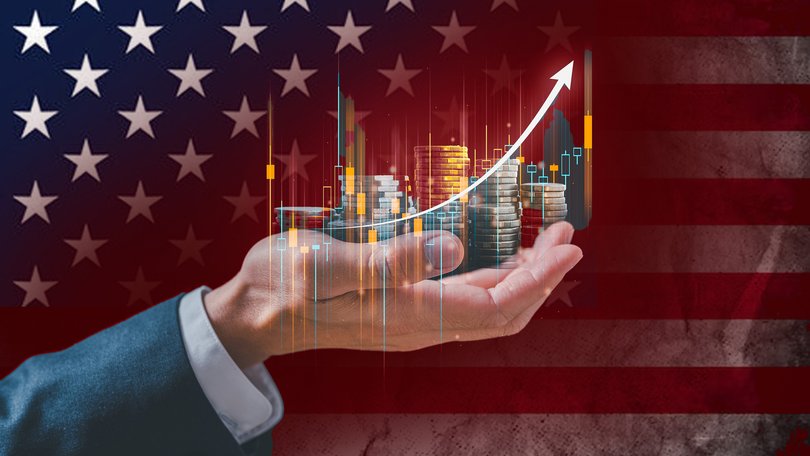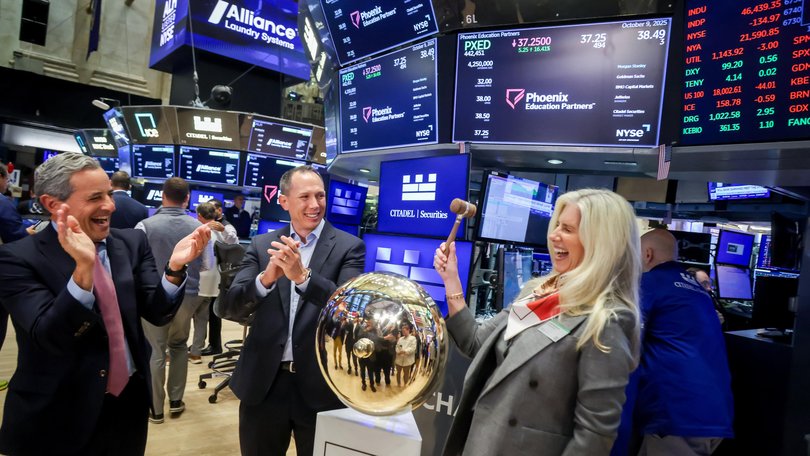THE ECONOMIST: Rich and retail investors keep pouring cash into stocks — but what happens when markets fall
THE ECONOMIST: The stockmarket is fuelling America’s economy but what happens in the event of a slump?

The stockmarket is not the economy, as the old investing cliché goes. That is obvious enough to anyone paying attention in America this year.
President Donald Trump’s tariff fervour has dented growth, even if not by as much as expected after “Liberation Day”, and yet the stockmarket has soared: the S&P 500 index of large American companies is up by nearly 15 per cent so far this year, comfortably ahead of the historical average.
But does the stockmarket power the economy? At most points in time, it would be a ridiculous question. In recent months, though, the rise in American share prices has coincided with, and been fed by, a rush of popular enthusiasm for investing.
Sign up to The Nightly's newsletters.
Get the first look at the digital newspaper, curated daily stories and breaking headlines delivered to your inbox.
By continuing you agree to our Terms and Privacy Policy.And as people see the line go up, they become more likely to spend. Now the answer to the question has important implications for the path of America’s stockmarket boom and its economy.

George Soros, a hedge-fund great, would call the relationship between the stockmarket and the economy “reflexivity”, the idea being that asset prices can affect underlying economic fundamentals, which in turn juice asset prices, and so on and so forth.
Many a buck could be made, he thought, by jumping on dislocations that result from such a dynamic.
An earnest economist would label it a “wealth effect”, noting that rising asset prices can nudge people to spend more, amplifying economic cycles.
Economists have most clearly observed such an effect in housing markets, which is traditionally where the bulk of household savings have sat.
When home prices soar, people feel more comfortable making big purchases, perhaps by drawing down savings or borrowing more. Indeed, studies find that a $1 boost in housing wealth nudges up spending by between two and six cents.
Today, though, America’s housing market is in the dumps. Higher mortgage rates have crushed demand; home sales are a third lower than they were in the go-go days of 2021, when buyers were enjoying two-point-something-per-cent mortgages.
Anyone looking to move today must be willing to trade such low interest rates for ones of 6–7 per cent, and few are. As a consequence, home prices are edging down — hardly the basis for a surge in consumption.
But look at the stockmarket soar. AI-related exuberance has propelled the valuations of technology companies.

Even duller businesses have benefited; companies in the “S&P 493”, excluding the “magnificent seven” tech giants, are also trading at multi-decade-high valuations.
How strong could stockmarket-wealth effects be? Although historical studies have found a smaller impact than for housing, the boom in retail investing, fuelled by easy-to-use platforms such as Robinhood, may have caused this to change. Portfolios squirrelled away in retirement accounts or in complex and hard-to-sell mutual funds might set the animal spirits alight rather less than a rising green line on a trading app.
Rich people tend to have a higher share of their wealth in stocks, relative to housing, than poor people, meaning they are probably benefiting disproportionately from surging share prices.
Since they are less likely to amp up their spending when their wealth increases (or have a lower marginal propensity to consume, in the jargon), this will somewhat mute the wealth effect.
Yet stock holdings have risen sharply in recent years among the less well-off, too. In 1989 only 3 per cent of the poorest fifth of households held stocks, according to a long-running survey conducted by the Federal Reserve.
By 2022, 17 per cent did. The share of average earners with stock holdings rose from 29 per cent to 60 per cent over the same period. Given recent exuberance, it is likely that both figures are higher today.
A wealth boom concentrated among the better-off might also help explain some unusual features in the modern American economy. These include the fact that the rich seem to have been able to increase their spending much faster than everyone else over the past few years, and that so far this year growth in employment has been much slower than growth in consumer spending. Perhaps a few big spenders are keeping everything afloat.
The good times could continue, at least for a bit longer. Goldman Sachs, a bank, estimates that wealth effects will boost annualised consumption growth by 0.3 percentage points in the third quarter of this year, and 0.2 percentage points next year.
If stock and home prices were to rise by 25 per cent and 6 per cent respectively, which would represent strong but not unprecedented performance, the boost could rise to half a percentage point.
That would help protect the economy from tariffs, lower immigration and any other ill-conceived policies that might emerge from the White House.
American doom-mongers have had a tough time over the past decade or so. Yet they will be well aware that wealth effects can go the other way, too: falling stock prices could hurt consumer spending, and do so at a vulnerable time.
Household wealth is nearly six times GDP, a record high, meaning any fall would be painful.
Troublingly, McKinsey, a consultancy, reckons that nearly 60 per cent of the growth in American wealth since 2000 has been “on paper” (i.e., beyond what actual economic growth would justify).
Down but not out
Might a wealthier society also take a harder fall? Bears would point to the bursting of the dotcom bubble in 2000, when a brutal stockmarket slump pushed America into recession.
Today stockmarket wealth is 50 per cent higher as a share of GDP than it was then. But it is also worth looking to another tech bubble, one that popped more recently.
Over the course of 2022, the value of Americans’ stock holdings relative to GDP fell by a quarter, as the share prices of pandemic tech darlings cratered while the Fed furiously raised interest rates in an attempt to contain inflation. Although consumption growth did slow towards the end of that year, it remained positive and rebounded soon enough.
The stockmarket might be more of the economy. It still is not all of it.
Originally published as The stockmarket is fuelling America’s economy
